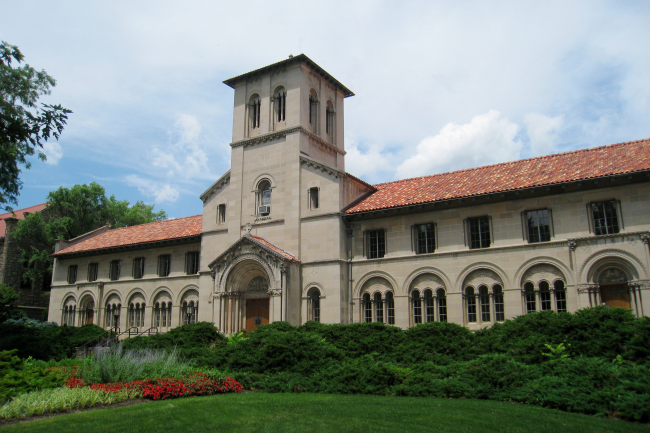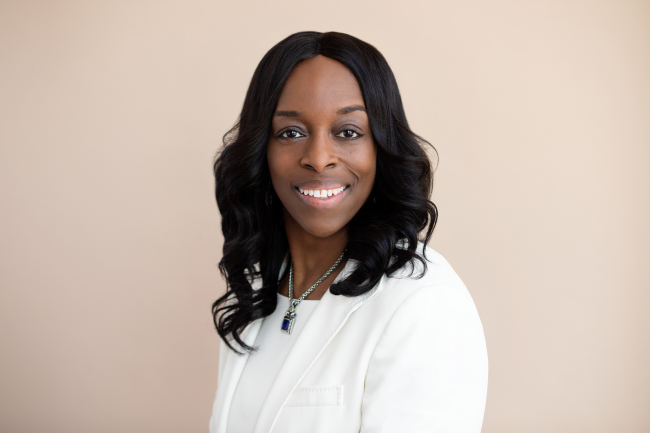[Herald Interview] ‘Liberal arts education offers key ingredient in tech economy’
Korean students interested in pursuing music can combine their musical training with economics, business management, finance or psychology to lead the way in promoting Korean culture or K-pop in innovative ways.
By Joel LeePublished : Oct. 25, 2018 - 15:36

According to the US Bureau of Labor Statistics in 2016, Americans changed jobs every 4.2 years on average and could be expected to hold between 10 and 12 jobs over a career.
In an increasingly complex global economy, the key to success lies in mastering transferable skills that help people deal with complexity and change, as well as the “cultural competency” needed to understand different perspectives and work with a wide range of people, according to Oberlin College President Carmen Ambar.
“In our world today, the technical skills a person learns will not serve him or her for the entire career, and people have to constantly relearn and adapt in creative and flexible ways,” she told The Korea Herald on Wednesday.
“What will be useful is having the sort of transferable skills that help you deal with complexity and change -- writing, analytical and communication skills. And you absolutely must have cultural competency, which is the ability to work with people from different backgrounds and understand different perspectives.”
Ambar -- the first African-American president in the school’s 184-year history -- came to Korea to strengthen alumni connections and promote the institution as a place of foresighted, pragmatic learning.
Oberlin College is a private liberal arts university in Oberlin, Ohio, founded in 1833. It is the oldest coeducational liberal arts college in the US.
“In the ‘fourth industrial revolution,’ liberal arts education is all the more important, because you need those people who can help engineers and scientists understand history, societies, cultures and the arts,” she said. “It won’t be enough to have technical qualifications in the future.”
“The big challenge is how to be able to handle the growing complexity of our world. That’s what it means to be of this generation,” she added.

At Oberlin, students study liberal arts and sciences, often pursuing a joint degree with musical education at its Oberlin Conservatory of Music.
They are taught in “all sorts of really interesting ways,” according to Ambar, who was educated at Georgetown University, Princeton University and Columbia Law School.
“When it comes to employment and entrepreneurship, having the combination of liberal arts-sciences and the arts comes very useful,” the educator said, noting that the conservatory students develop an “entrepreneurial spirit” of promoting themselves through social media, marketing and branding.
She also suggested that Korean students interested in pursuing music can combine their musical training with economics, business management, finance or psychology to lead the way in promoting Korean culture or K-pop in innovative ways.
In 1835, Oberlin became the first college in the US to admit African-Americans, and the first to admit women in 1837.
“That commitment to openness and inclusion is what’s distinctive about Oberlin. And we have carried this mindset over the years,” she said. “Our education is also very committed to social justice, which is very much needed for entrepreneurs and professionals of today and tomorrow. Today’s young students are driven by the desire to change society and care about it, to make it better.”
By Joel Lee (joel@heraldcorp.com)








![[KH Explains] Hyundai's full hybrid edge to pay off amid slow transition to pure EVs](http://res.heraldm.com/phpwas/restmb_idxmake.php?idx=644&simg=/content/image/2024/04/18/20240418050645_0.jpg&u=20240419100350)






![[From the Scene] Monks, Buddhists hail return of remains of Buddhas](http://res.heraldm.com/phpwas/restmb_idxmake.php?idx=652&simg=/content/image/2024/04/19/20240419050617_0.jpg&u=20240419175937)

![[KH Explains] Hyundai's full hybrid edge to pay off amid slow transition to pure EVs](http://res.heraldm.com/phpwas/restmb_idxmake.php?idx=652&simg=/content/image/2024/04/18/20240418050645_0.jpg&u=20240419100350)

![[Today’s K-pop] Illit drops debut single remix](http://res.heraldm.com/phpwas/restmb_idxmake.php?idx=642&simg=/content/image/2024/04/19/20240419050612_0.jpg&u=)